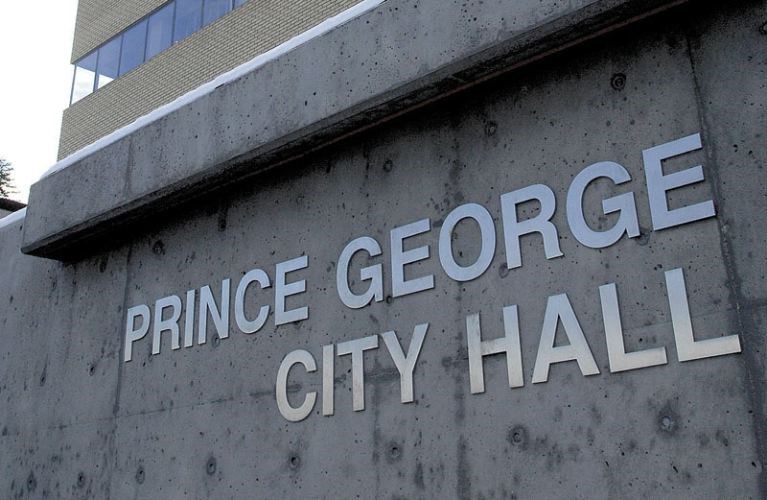The surest sign a municipal election is just around the corner is that it's time to review the pay for the mayor and city councillors.
Five local residents are needed to join the Advisory Committee on Council Remuneration. They have until next Friday to apply to be on the committee. City council will appoint the chosen ones on March 26, an obvious conflict of interest but only the first of several in this process.
The five residents will get together with three city employees -director of human resources Rae-Ann Emery, supervisor of payroll and benefits Tami Wicki and manager of legislative services Maureen Connelly - to compare Prince George's pay, expenses and other mayor and council costs with nine other B.C. communities. The five residents on the committee (the city staffers are there for their expertise but don't get to vote) then put together recommendations on what the mayor and city council chosen by voters in the next election will be paid during their four-year term from 2019 through 2022.
The recommendations from the committee members are non-binding, meaning that the current mayor and council are free to ignore them, another conflict of interest.
For example, the 2014 remuneration committee recommended Prince George city councillors be paid at 40 per cent of the mayor's rate. If that had gone through, the current group of city councillors would have been paid more than $37,000 per year. Instead, the past mayor and council said no to the recommendation and the council rate was set at $31,000 or about one-third of the mayor's rate.
The 2018 committee has some other factors to consider. The federal government used to offer a tax exemption on one-third of the pay for municipal politicians but that exemption has been phased out. In other words, the committee will have to introduce a pay increase just to keep the take-home pay the same for the next city council.
This problem was created in Ottawa, meaning the Prince George council pay committee should feel little to no obligation to fix it, especially since every other municipality is in the same boat.
What this committee should consider, rather than just straight up increases to pay, benefits and expenses, are performance bonuses. Like other boards in both the private and public sectors, the mayor and council should have to earn anything they receive above a basic flat honorarium by delivering results with clearly-defined measurables, such as attendance, committee work, time spent as acting mayor, external work with the provincial and/or federal advocacy groups for municipalities and meeting fiscal targets.
Another thought: give the mayor and councillors 10 per cent wage increases in exchange for wiping out their expense accounts and their per diems on meals and accommodation when travelling on city business. This would be cheaper than the current system and would also eliminate the unnecessary and awkward bureaucracy of requiring city employees approving where the mayor stayed and where and what he ate while in Vancouver for a meeting with the premier.
With no receipts necessary, the mayor could drive, stay at a relative's house and eat value menu hamburgers or fly down, stay at the Pan Pacific and eat a $150 steak.
Either way, the taxpayer and city staff don't care, as long as the work is done.
Regardless of how they are compensated, the mayor and the city councillors should be paid appropriately for the important four-year jobs voters give them.
Although the mayor currently makes about $95,000 in salary, before benefits and expenses, there are dozens of City of Prince George jobs that are paid the same or more than the mayor, starting with the three city employees the residents chosen by the remuneration review committee will be working with.
That's just one of the many factors to keep in mind for the committee.
For those curious about serving, check out the ad that will appear in tomorrow's Citizen and again next Thursday, the day before the application deadline.
It's valuable work that needs to be done on behalf of local residents and taxpayers, even if the mayor and council have the authority to ignore some or all of the recommendations.
-- Editor-in-chief Neil Godbout



